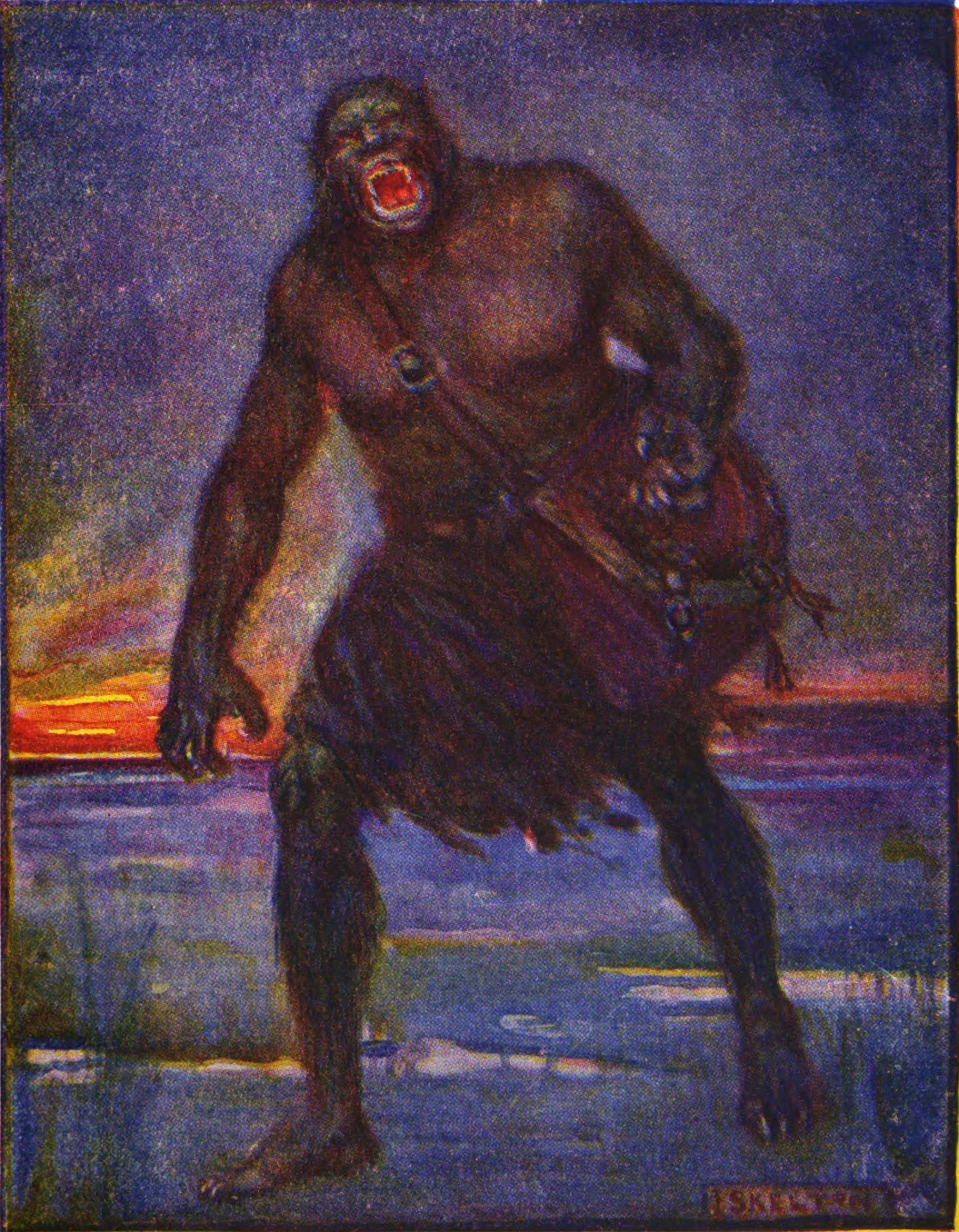|
Helming
The Wulfings, Wylfings or YlfingsWord initial ''w'' was lost before rounded vowels in Proto-Norse, e.g. ''wulf'' corresponds to ''ulf'', and ''Wulfing''/''Wylfing'' corresponds to ''Ylfing'', because the ''i'' in the second syllable causes an umlaut in the first syllable ''u''->''y''. (the name means the "wolf clan") was a powerful clan in '' Beowulf'', ''Widsith'' and in the Norse sagas. While the poet of ''Beowulf'' does not locate the Wulfings geographically, Scandinavian sources define the Ylfings (the Old Norse form of the name) as the ruling clan of the Eastern Geats. The Wulfings play an important role in '' Beowulf'' as Beowulf's father Ecgþeow of the Wægmunding clan had slain one of its members, and was banished for not paying the weregild. The Danish king Hroðgar, who was married to Wealhþeow, a Wulfing woman, graciously paid the weregild, and when Beowulf arrived at the Danish court in order to slay Grendel, Hroðgar interpreted this as a son's gratitude. In O ... [...More Info...] [...Related Items...] OR: [Wikipedia] [Google] [Baidu] |
Wealhþeow
Wealhtheow (also rendered Wealhþēow or Wealthow; ang, Ƿealhþēoƿ ) is a queen of the Danes in the Old English poem, ''Beowulf'', first introduced in line 612. Character overview Wealhtheow is of the Wulfing clan, Queen of the Danes. She is married to Hrothgar (Hrōðgār), the Danish king and is the mother of sons, Hreðric and Hroðmund, and a daughter Freawaru. The meaning of her name is disputed. One possible translation is "foreign slave" (Hill, 1990). In her marriage to Hrothgar she is described as ''friðusibb folca'' (l. 2017), 'the kindred pledge of peace between peoples', signifying interdynastic allegiance between Wulfing and Scylding achieved with her marriage to Hrothgar. She is both 'Lady of the Helmings' (l. 620) (by descent, of the Wulfing clan of Helm) and 'Lady of the Scyldings' (l. 1168), by marriage and maternity. Two northern sources associate the wife of Hrothgar with England. The ''Skjöldunga saga'', in Arngrímur Jónsson's abstract, chapter 3, tells ... [...More Info...] [...Related Items...] OR: [Wikipedia] [Google] [Baidu] |
Hroðgar
Hrothgar ( ang, Hrōðgār ; on, Hróarr) was a semi-legendary Danish king living around the early sixth century AD. Hrothgar appears in the Anglo-Saxon epics ''Beowulf'' and ''Widsith'', in Norse sagas and poems, and in medieval Danish chronicles. In both Anglo-Saxon and Scandinavian tradition, Hrothgar is a Scylding, the son of Halfdan, the brother of Halga, and the uncle of Hrólfr Kraki. Moreover, in both traditions, the mentioned characters were the contemporaries of the Swedish king Eadgils; and both traditions also mention a feud with men named Fróði and Ingeld. The consensus view is that Anglo-Saxon and Scandinavian traditions describe the same person. Names Hrothgar, also rendered ''Hrōðgār'', is an Old English form attested in ''Beowulf'' and ''Widsith'', the earliest sources to mention the character. In non-English sources, the name appears in more or less corresponding Old Icelandic, Old Danish, and Latinized versions. He appears as ''Hróarr'', ''Hroar'', etc ... [...More Info...] [...Related Items...] OR: [Wikipedia] [Google] [Baidu] |
Ecgþeow
Ecgþēow (pronounced ), Edgetho (Proto-Norse *''Agiþewaz''), or Ecgtheow is a character in the Anglo-Saxon epic ''Beowulf''. He is not mentioned outside the ''Bēowulf'' manuscript, and it is not known whether he was based on a real person. He belonged to a probably Swedish family (an ''ätt'', see Norse clans) called the '' Waegmundings''. He married the daughter of Hreðel, king of the Geats, and was the father of Bēowulf. His name could be read as ''eċġ'' + ''þēow'', "edge-servant" (that is, sword-thane); alternatively, if his name was a compound of the ancient ''bahuvrihi'' type as were many other Germanic heroic names, it would indicate proficiency with the sword, meaning literally, "whose servant is the sword". He is first mentioned in ''Bēowulf'' at lines 262–266, when Beowulf tells the coast-guardian that "My father was known to everyone," calls him a "noble battle-leader", and says that he died after living through "many winters" and that he is remembered w ... [...More Info...] [...Related Items...] OR: [Wikipedia] [Google] [Baidu] |
Grendel
Grendel is a character in the Anglo-Saxon epic poem '' Beowulf'' (700–1000). He is one of the poem's three antagonists (along with his mother and the dragon), all aligned in opposition against the protagonist Beowulf. Grendel is feared by all in Heorot but Beowulf. A descendant of Cain, Grendel is described as "a creature of darkness, exiled from happiness and accursed of God, the destroyer and devourer of our human kind". He is usually depicted as a monster or a giant, although his status as a monster, giant, or other form of supernatural being is not clearly described in the poem and thus remains the subject of scholarly debate. The character of Grendel and his role in the story of ''Beowulf'' have been subject to numerous reinterpretations and re-imaginings. Story Grendel is a character in the poem ''Beowulf,'' preserved in the ''Nowell Codex''. Grendel, being cursed as the descendant of the Biblical Cain, is "harrowed" by the sounds of singing that come every night ... [...More Info...] [...Related Items...] OR: [Wikipedia] [Google] [Baidu] |


